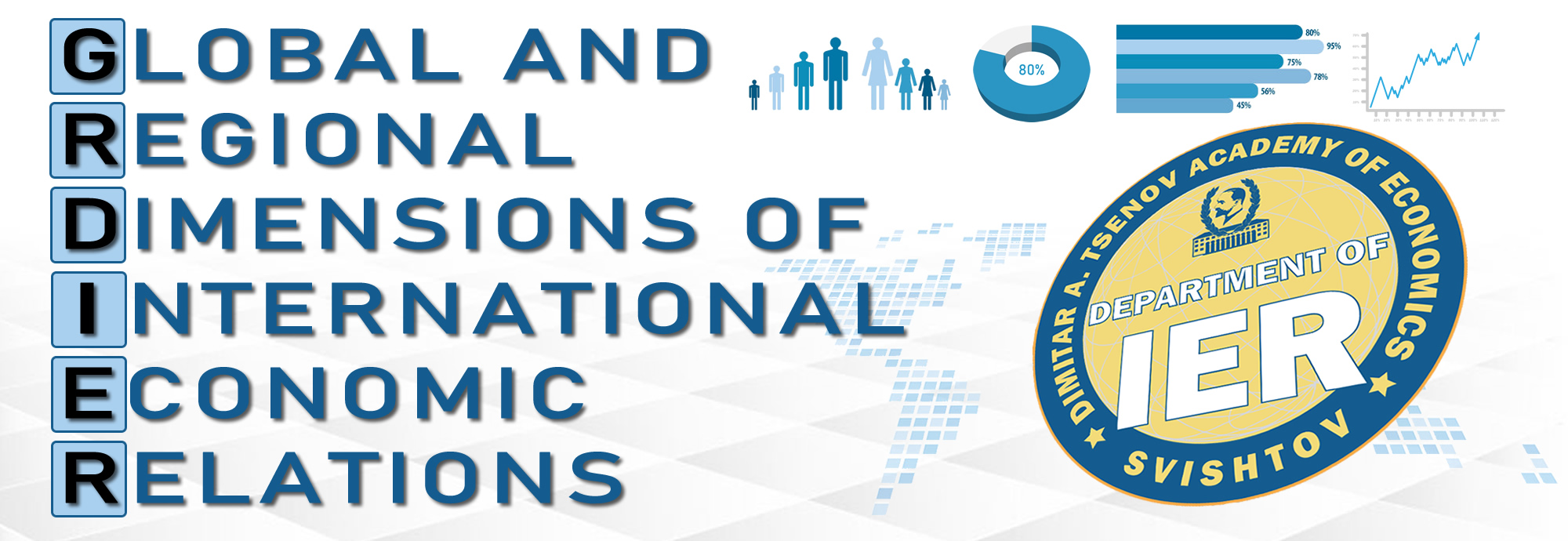-
Greta Ivanova Tsanova
PERSONNEL POLICY IN INTERNATIONAL ORGANIZATIONS
Summary:
At the current stage of development of international organizations, it is important to increase the efficiency of the use of available resources, including human resources. The thesis advocated in the present study is that a well-thought-out and balanced personnel policy is the basis of good workforce management, and achieving high results in any field of activity is possible only with personnel with a high level of knowledge, abilities and business qualities. Personnel policy contributes to uniformity in personnel decisions, proper control and coordination among workers. They are essential for the optimal functioning of the international organization. Objective and positive personnel management is only possible when management prepares personnel policies.
-
Gabriela Rumenova Dimova, Anika Vasileva Nikolova
METHODS OF MOTIVATING EMPLOYEES TO COMPLY WITH SAFETY MEASURES
Summary:
The scientific report examines key aspects of human resource management in international business, focusing on methods of motivating employees to improve workplace safety standards. Emphasis is placed on the importance of human resource specialists in creating clear safety policies, defining employee roles, and integrating a culture of safety within the organization. Strategies such as communication, training, and the use of modern technologies are presented as means to achieve the goals of enhancing workplace safety. Effective human resource management is crucial for increasing productivity, reducing workplace accidents, and creating a positive work environment. The report provides valuable insights for international companies aiming to improve the safety and motivation of their personnel.
-
Svetlin Borisov Rangelov
SPECIFIC IN THE MANAGEMENT OF CLUSTERS COMPARED WITH THAT OF INDIVIDUAL ORGANIZATIONS
Summary:
The report presents the particularities in the management of clusters compared to individual companies. It examines three important aspects in which the approach to leadership differs. A comparative analysis is made of the specifics of the management of cluster organizations, compared to that of individual companies in nine main directions. Attention is paid to their structure, focus, activity, influence and impact. It is concluded that the distinction between the management of a cluster and that of a company is crucial, as they represent different operational units with different objectives and dynamics.
-
Alexander Georgiev Danailov
MANAGING AN INTERNATIONAL COMPANY DURING A CRISIS
Summary:
This scientific report presents a very important topic that affects many international companies by focusing on an international company that has dealt with several crises. By means of theories on this topic, basic anti-crisis steps are summarized. The results of exiting the financial crisis of the investigated company are indicated. The report is designed to be able to provide recommendations and effective relationships to bring the company out of crisis. The objectives of the task are to analyze the essence of company management, to identify the main possibilities for a company to fall into crises and to outline the main factors of the company's external and internal environment leading to the emergence of a crisis.
